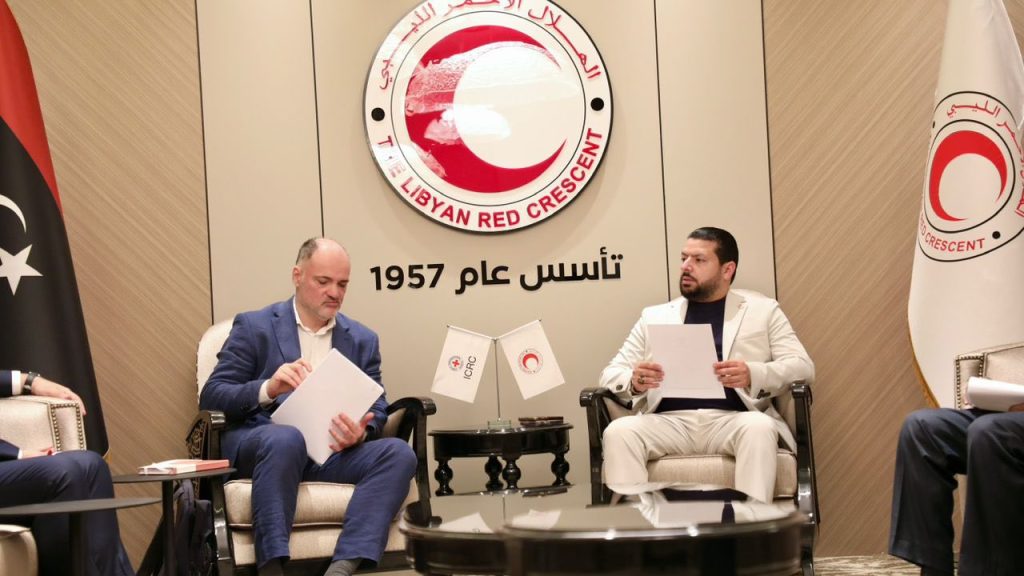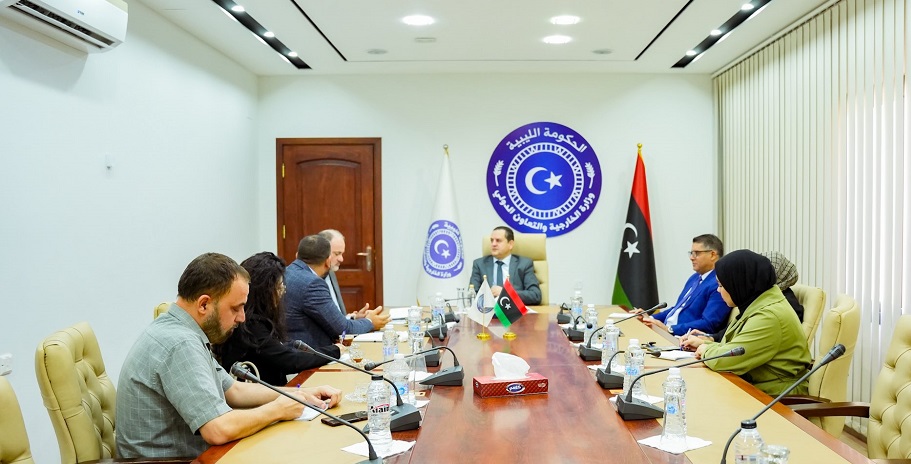Benghazi— The Parliament-appointed government in eastern Libya has demanded the International Committee of the Red Cross (ICRC) to refrain from interfering in political or religious affairs or infringing upon Libyan customs, traditions, and values, according to a statement by the Foreign Ministry on Tuesday.
The demand came up during a meeting between the Acting Foreign Minister in the Osama Hammad’s government, Abdulhadi Al-Huwaij, and Hugo van den Eertwegh, the head of Security and Crisis Management in the ICRC who was in an official visit to Benghazi on 11 November 2025.
During the meeting, Al-Huwaij emphasized the importance of “having a local partner for any activity carried out by the mission or other international organizations within Libya,” stressing the need to adhere to the national laws governing the work of these organizations.
He also commended the humanitarian efforts undertaken by the ICRC in Libya and its role in supporting relief and humanitarian aid programs, urging the organization to contribute to the voluntary return program for Sudanese nationals fleeing civil war in Sudan.
Al-Huwaij specifically mentioned to the ICRC’s senior official the government’s regulations and circulars regarding the work of international organizations in the country that stipulate “non-interference in political or religious affairs, or prejudice to Libyan customs, traditions, and values,” said the statement.
The demand comes at a time of growing political tension between the Libyan people and the persistent infringing upon Libyan sovereignty by international organizations, foreign diplomats and foreign NGOs, including lately the United Nations Supporting Mission in Libya (UNSMIL). The public has grown ‘uncomfortable’ with all these foreign organizations’ interfering in even municipalities’ day-to-day work under the pretext of providing help in the field of so-called good governance.
The continuous political stalemate in Libya, the failure of the United Nations in helping Libyans establish a unified government, in addition to the ongoing unprecedented economic crisis and widespread corruption, all are factors that have deepened the people’s frustration and distrust of international organizations and their ‘schemes’ in the country.
Al-Huwaij indicated that the ICRC’s 2026 work plan in Libya “must be based on the needs of local partners, not on ready-made plans imposed from abroad,” affirming that “effective cooperation is based on direct coordination with the relevant national authorities.”
Mr. Eertwegh held another meeting with the Secretary-General of the Libyan Red Crescent Society’s Mr. Marai Al-Darsi in Benghazi and both discussed common challenges facing the humanitarian work of their organizations and ways and means to enhance cooperation between them.
They reviewed the humanitarian response to the crisis in Sudan and the influx of Sudanese refugees in Libya. They agreed that there should be a joint work plan for the year 2026 that will be based on strengthening partnership and contributing to meeting the ever-growing humanitarian needs in this part of the African continent. They also discussed the need for capacity building of volunteers.

